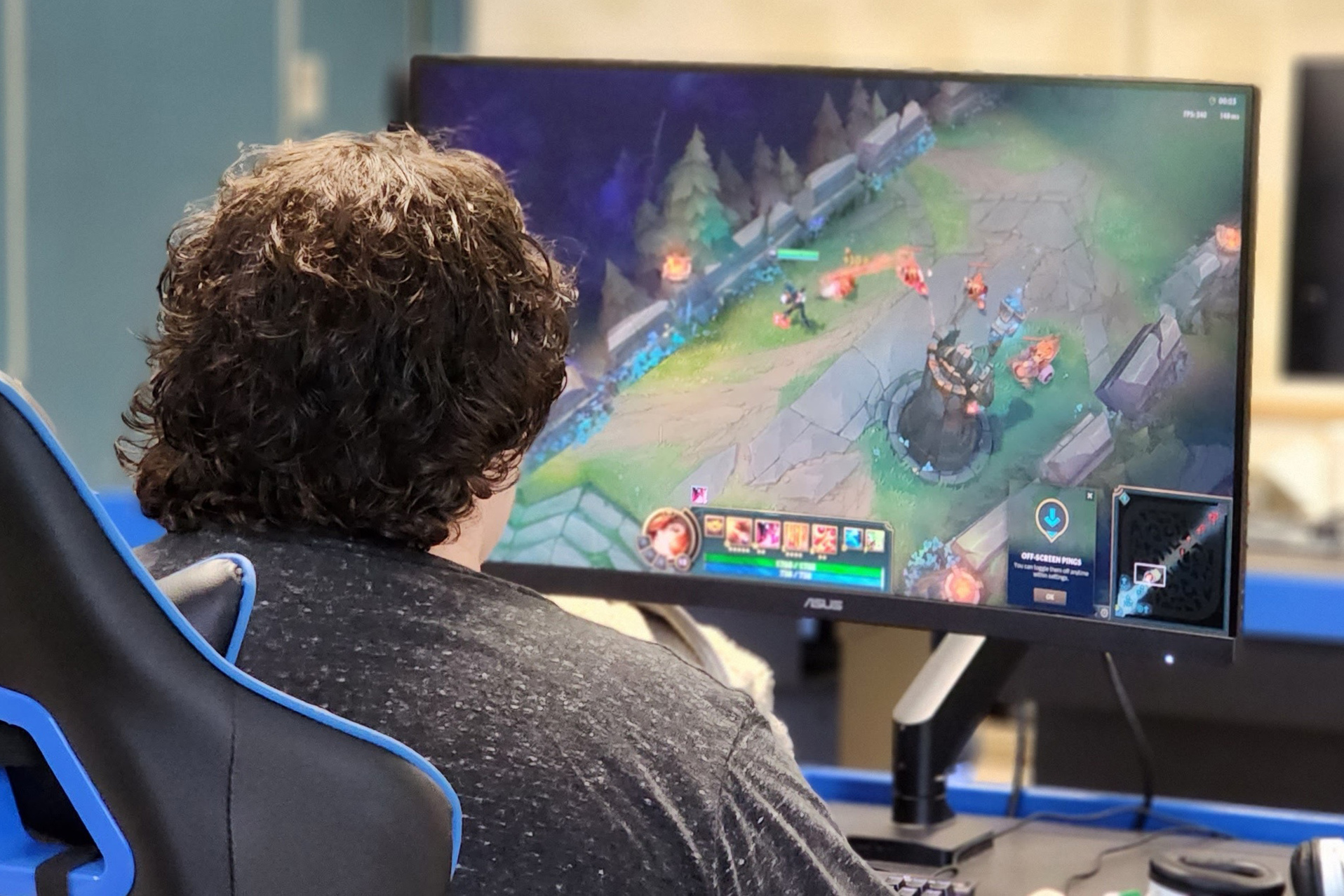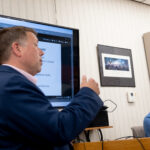
FORT KENT, Maine — Students are building high-end computers in a unique program devised at University of Maine at Fort Kent that the school’s newly formed esports club will use.
Kelly White, a professor who teaches many of the school’s computer classes and advises the esports club, said he is not aware of any other schools in Maine with a similar arrangement.
While some colleges use student-built machines for esports, UMFK has a series of classes focused on building gaming computers specifically. Students go from researching parts and physically building the computers to installing the operating systems and providing IT services. They come away from the program with multiple industry certifications and four years of experience to bring into the job market.
The school’s esports club is just getting off the ground, but next month the club will play against other Maine colleges and universities in a newly formed state league.
The university’s unique program is thanks to a multi-million-dollar grant from the Harold Alfond Foundation to the University of Maine System. The grant provides the UMFK computer science program with $18,000 per year for 10 years.
Students last year built six high-end gaming computers with the first round of funding. Those machines are being used by the university’s new esports club. A new class is starting to build a second set of computers.
The grant money supports research projects. Because this class and program were being created around the time the school received the funding, White said it was easy to tailor the lessons to the grant’s stipulations.
“This is a fairly research-heavy class,” White said. “We’re researching software titles, system requirements and different computer components every week in class. We were able to leverage some of these grant funds to actually buy the components instead of it being ‘If I could buy a computer, this is what I would build.’”
Owen Coopsamy, a transfer student from South Africa, said this is one of his first classes at UMFK.

Coopsamy chose UMFK because he wanted to study internationally, and decided that the United States would be the best fit. His brother also attended UMFK, so he had knowledge of the school before signing up.
He is working to gain as much knowledge from this program as possible while he determines a future career.
“I’ve worked with a lot of software development, but now, with this program, I’ve gained a lot of interest in the hardware side,” he said. “I would consider going into a more technical role with hardware, like a computer technician.”
Coopsamy is not part of the esports club, but said he is considering joining.
The class is part of the school’s new Computer Systems Administration program, which is a clearer version of the former degree called Computer Applications, White said. It is broad enough to cover a number of different jobs, but concise enough that potential employers understand its purpose, he said.
Once the hardware class builds the machine, the operating systems class installs Windows and any other necessary applications during the spring semester. The new degree program also includes a customer support class, which will handle tech support for computers in the esports lab.
“They’re going to have actual experience as a customer service technician in an actual working lab,” White said.
By the end of the program, White said graduates will have about half a dozen industry certifications and four years of experience working in a functioning lab in addition to their degree.
As the new degree program gains momentum, so is the school’s esports club.
Andrew Pierce, a third-year behavioral science major, said he first tried starting the esports club in 2020 as a freshman, but it didn’t gain momentum. Now, with six gaming computers ready to go, he is rebooting the club.
“I think it’s really amazing how students got together and were able to build these computers,” he said. “I think that’s really awesome. They were learning as well as giving us the opportunity to get this up and going.”
High-end computers are crucial for esports, because many games require machines that can keep up with fast action and quick reflexes.
Pierce said the club, in addition to being fun, will instill traits such as teamwork and building bonds with others — helpful skills as club members graduate and enter the workforce.
Dakota Marin, a first-year student, said he was motivated to join the club because he already enjoys playing video games. He is pursuing general studies, but said he may consider switching to a computer-related major.
“This has a lot of potential,” Marin said. “It should be very fun once it gets up and going.”
As the club gains momentum, it could become a team. At that point, a coach would be hired and it would become part of the university’s athletics department. Many schools in Maine with full-fledged teams participate on a national level as part of the National College Athletics Association (NCAA). Husson University, for example, has a large esports program with nearly 40 members.
White said Husson’s esports coordinator told him they typically don’t rank too high nationally, which led him to ask about a state league. At the time, there was no state league, so he made one, White said.
From there, White said he teamed up with Husson esports coordinator Andrew Michaud and a computer science student working on an internship to create the Maine Intercollegiate Esports League. Nine schools are now part of the league.
Michaud said the league will ideally encourage more Maine schools to play with each other.
“Our goal is to provide opportunities for schools to engage in fun and challenging competitions,” he said. “We are hoping it can be a more relaxed environment compared to national tournaments.”
He said the state league will also allow friendly games between Maine high school teams.
“This would help build connections between all the different levels and areas of esports in Maine and should help grow esports in general,” Michaud said. “I’m really excited to see our first season get going.”
UMFK’s club is currently playing Apex Legends, a first-person shooter, which will be played against other schools in the state league this fall. The club will be able to train in additional games as more students get involved.
For now, White said he hopes to see momentum grow to the point where the club can become a formal team.
“That’s the goal,” he said. “To have this transition from a club into a team and hire a full-time esports coordinator/coach.”







